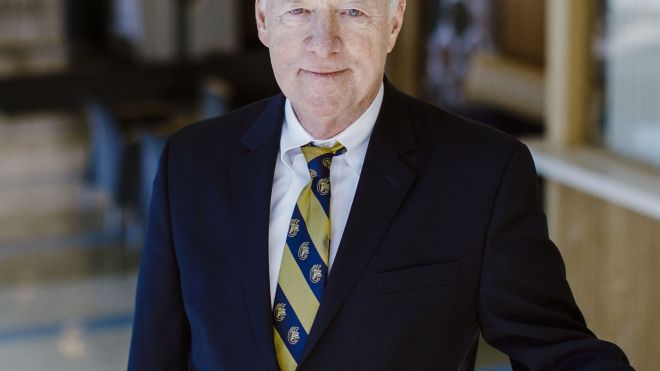
Buffalo, NY - I was young when I went to my first Olympics, for the Courier-Express, and old when I went to my last, for USA Today.
“You’re only young once,” the saying goes, “but you can be immature forever.”
That line is attributed to Germaine Greer, the Australian writer. And it so happens that the Aussies’ 2000 Olympics, in Sydney, are the best Summer Games I got to see. That’s largely thanks to Cathy Freeman, the Aboriginal sprinter who won the 400 meters for her home country — and to Michael Meeks (pictured, right), Canisius Class of 1996, who played for Canada’s men’s basketball team. (This Golden Griffin didn’t win a gold medal, but he did have a golden game, which we’ll get to.)
The Paris Games has their Opening Ceremonies come Friday, July 26. At the close of Closing Ceremonies, IOC president Thomas Bach will, as is tradition, call on “the youth of the world” to assemble again in four years. That makes the Olympics a lot like college, where new classes roll over every four years.
Mine is the Class of 1976.
We graduated that May — and two months later I was off to Montreal to cover the Summer Games. Well, sort of. With no credentials, and no accommodations, I left Buffalo with nothing more than a backpack and a dubious plan to spend my overnights in youth hostels.
Doug Turner, the Courier's editor, would not let us miss the Olympics entirely when it was only 400 miles away. (He rowed for the USA at the 1956 Melbourne Games; the four-man boat with coxswain from the West Side Rowing Club had won the Olympic trials and then its first heat at the Olympics before being beaten in the semifinals.) Turner instructed me to write my daily dispatches in the vein of Mark Twain’s “The Innocents Abroad.”
As assignments go, try-to-be-Twain is an impossible one, but those 16 days in Montreal, on the outside looking in, gave me Olympic fever forever. I’m lucky that I got to go to a dozen more Olympic Games — a mix of Summer and Winter — and I treasure them all.
Norway’s 1994 Lillehammer Olympics are the best Winter Games I got to see.
There I covered speedskating for USA Today and witnessed the USA’s Dan Jansen win gold in his last desperate chance at a medal. At Sarajevo, in 1984, he had finished fourth in the 500 meters. At Calgary, in 1988, as a favorite for gold, he fell in the 500 only hours after learning that he had lost his sister Jane to leukemia. Days later, he fell again in the 1,000 meters. At Albertville, in 1992, he was fourth in the 500 and 28th in the 1,000; soft ice on the outdoor oval favored skaters with less powerful strides.
A month before the 1994 Games, Jansen set a world record in the 500 on Lillehammer’s indoor ice, making him the odds-on favorite for gold. Then he had a slight slip — all it takes at that distance — and finished an unimaginable eighth. Only the 1,000 meters remained, where he was not favored. Somehow, though, Jansen won in world-record time and then carried his toddler daughter — Jane — on a victory lap for the ages. The crowd all but cheered the roof off of Viking Ship Hall. Small wonder: Norwegians know more than a little about speedskating. And about sagas.
Back to Sydney, where Freeman lit the flame at Opening Ceremonies in a caldron that looked like a baptismal font. The cleansing elements of fire and water seemed to offer absolution for Australia’s original sin against its original people — and 10 days later Freeman won the 400 meters, the first Australian Aboriginal to win an individual Olympic gold medal. More than 100,000 of her full-throated countrymen offered her the loudest cheers I have ever heard.
And then there is Meeks. I covered the USA’s men’s and women’s basketball teams in Sydney — both won gold — but also happened to be on hand when Canada’s men played Spain. Steve Nash was Team Canada’s star, but Meeks was its leading scorer, and I wanted to see him play because he had led the Griffs to the 1996 NCAA tournament for coach John Beilein.
Against Spain, in group play, Meeks pitched a perfect game: 8-for-8 from the field (including four three-pointers) and 4-for-4 from the free-throw line, for 24 points. (Canada won its group but lost to France, 68-63, in the quarterfinals.)
The CBC did an oral history of that team a few years ago. “I think I had like (24) points and didn’t miss a shot,” Meeks said. “Just felt like 50.”
Fifty? These days, I feel like 70. (Which I am.) No worries, though. You’re only old once, but you can be immature forever.
Story by: Erik Brady '76


